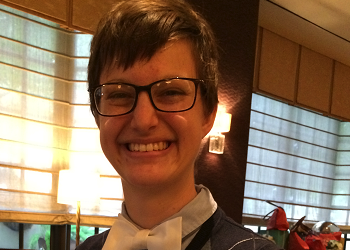The importance of case-based study in ethics consultation
Ethics consultation is tough stuff. Ethics consultants seek to identify and address value-laden conflicts or ethical uncertainties in cases involving patients, healthcare professionals, and family members.
Ethics consultants work efficiently and systematically to elicit morally relevant perspectives, synthesize information, and help parties identify and move towards an ethically appropriate course of action. We often draw on mediation or other dispute resolution techniques to tackle conflicts between parties on sensitive and important ethical issues, such as end-of-life decision making, privacy concerns, informed consent, and professional or institutional responsibilities.
Our recommendations and the actions we take impact patient care. Ethics recommendations, like all patient consultations, are technically non-binding. However, during an informal review of our ethics service, we found that clinicians followed our recommendations in 100 percent of cases where the patient’s status did not significantly change after receiving our recommendation. Can you imagine if we “got it wrong?” Fortunately, I have high confidence in our ethics consultants, all of whom are highly skilled, fellowship-trained, experienced clinical ethicists.
But that is not the case nationwide. Research shows that several ethics consultations are carried out by people who do not have formal education or training in ethics consultation, and most ethics consultation services do not engage in rigorous quality improvement.

To address the problem of discrepant competencies, there are committees charged with enhancing the skills and knowledge of people engaging in ethics consultation. For example, I chair a national committee called the Clinical Ethics Consultation Affairs Committee (CECA), which is a standing committee for the American Society for Bioethics and Humanities.
Our job is to create and disseminate “best practice” education tools to enhance ethics consultants’ skills in conducting ethics consultation, particularly for those with less experience. Most of the CECA committee members direct high-volume ethics consultation services in tertiary academic or community settings or work as full-time clinical ethicists; many do both.
Committee members actively contribute to scholarship and research on ethics consultation, writing and publishing on consultative methods, best practices, and quality improvement mechanisms for ethics consultation. All of us have worked extensively at the bedside, talking with patients, families, and clinicians to resolve common and complex ethical issues.
This year, we published a book called, “Addressing Patient-Centered Ethical Issues in Health Care: A Case-Based Study Guide.” In our book, we provide 12 cases on various topics in clinical ethics. The first nine cases involve adult patients; the last three involve minors. The cases include complex patient and family narratives interwoven with ethically relevant medical, surgical, and psychosocial material.
The cases are authentic (the patients’ names have been removed, and some facts have been changed to preserve anonymity) and representative of our collective experience in performing ethics consultations.
We present our cases with an unfolding approach: We interrupt each case at several junctures to ask questions of the reader. For example, some of the questions concern knowledge, such as “What are the elements of decision-making capacity?” We chose the unfolding approach because ethics consultation often moves incrementally in the clinical setting. The ethics consultant fact-gathers, takes actions based on that information, learns more information, and takes actions based on that new information.
An ethics consultant’s analyses may change throughout the course of a case, and the ethically appropriate options may evolve depending on whether and how the case moves or pivots. Answers to our questions are provided at the end of each case.
In creating this book, we spent considerable time researching the best ways to cultivate critical thinking skills according to the educational psychology literature. We are confident that what we present is one of the best ways to teach and learn clinical ethics, and we think this resource could be useful to many clinicians and healthcare professionals who do not work in a clinical ethics capacity in their hospitals.
–By Courtenay Bruce, J.D., assistant professor in the Center for Medical Ethics and Health Policy at Baylor College of Medicine



